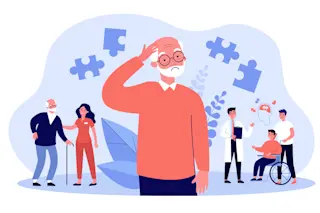While music and dance are great mood enhancers, a recent study by the United Nations and World Health Organization also shows substantial benefits in both short-term and long-term contexts for brain function. And a study in Cerebrum Medical Journal shows the same for bilingualism.
All three skills – bilingualism, music and dance – keep the brain nimble and neural connections stronger for longer, which could impact Alzheimer’s prevention. But to make this impact, prevention needs to start in childhood.
Learning multiple languages helps the brain to better process environmental information, and learn more readily. It also increases cognitive control by regulating sensory processing. The brain has a better ability to control responses and to switch attention from one task to another quickly, along with improved reaction time.
Instilling culturally dynamic interests and skills in children is the best way to ensure higher cognitive abilities and prolonged cognitive reserves in old ...














